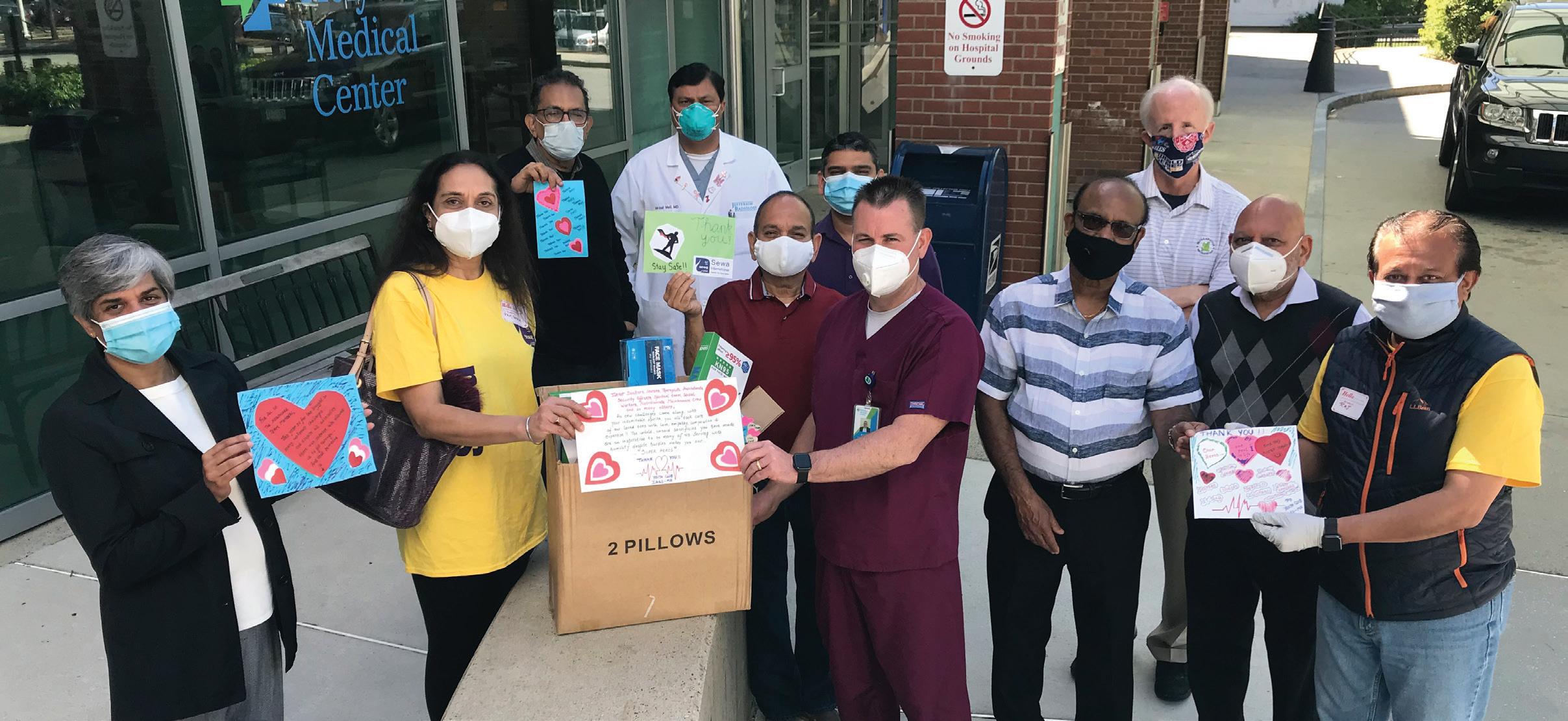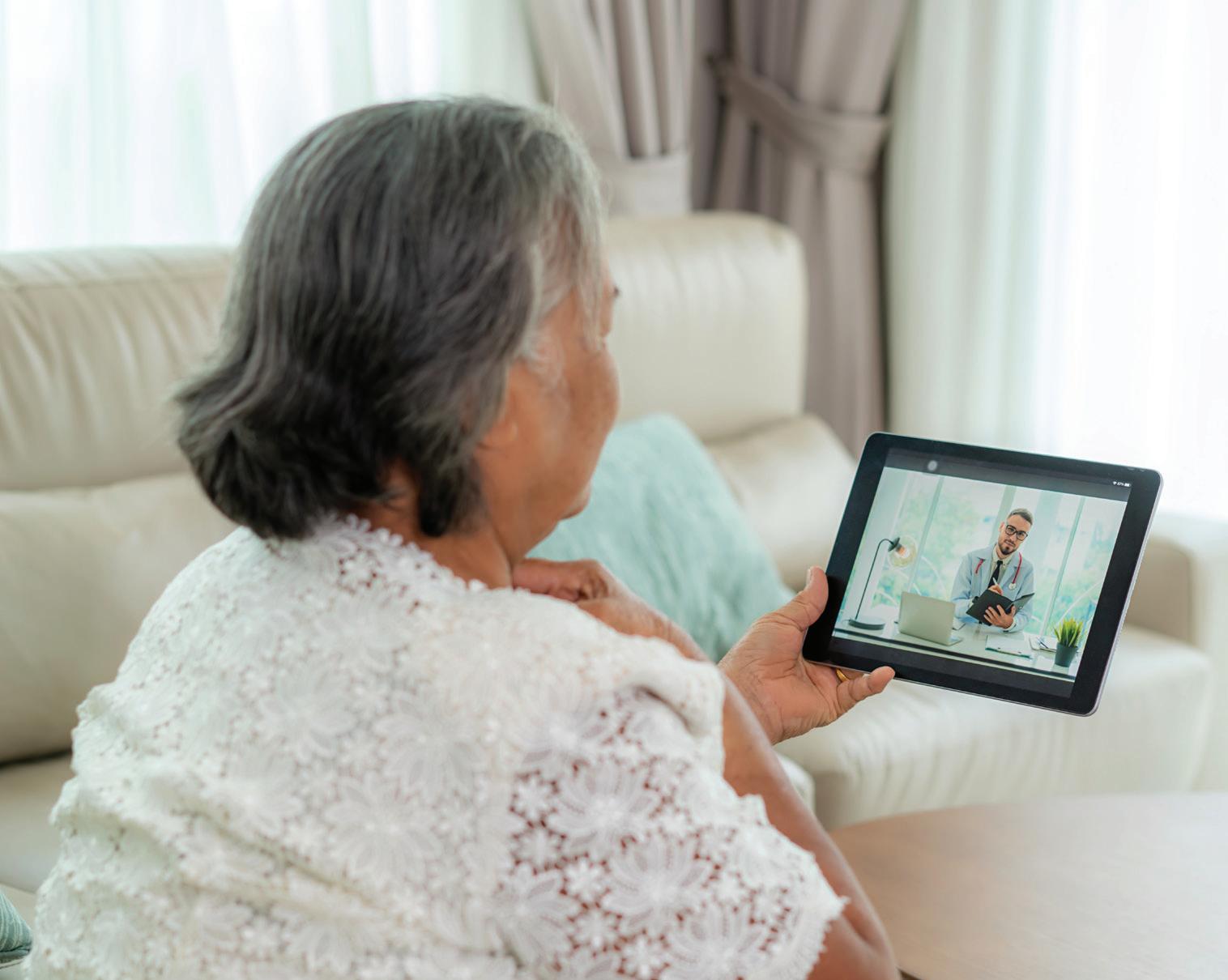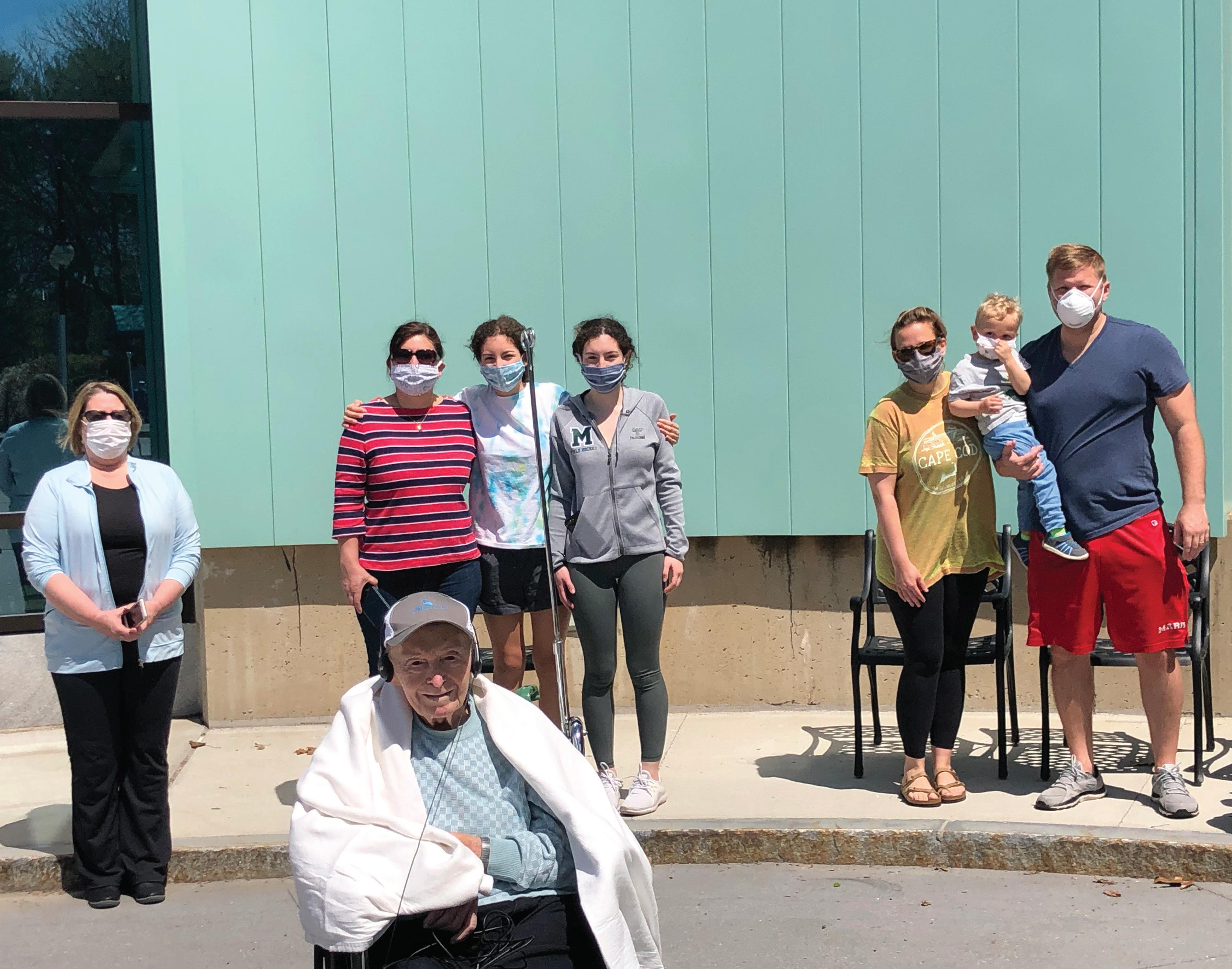TELEHEALTH
COMES OF AGE WHEN COVID-19 HIT, PROVIDERS WORKED HARD TO TRANSITION WITHIN A WEEK TO NEARLY 100 PERCENT VIRTUAL APPOINTMENTS. Within a week of non-essential services and businesses shutting down, Holyoke Medical Group (HMG) and River Valley Counseling Center (RVCC) both transitioned from almost no telehealth visits to effectively 100 percent virtual care. And telehealth appears to be here to stay. “We’re still doing 70 percent of patient care via telehealth,” says Kartik Viswanathan, MD, Medical Director of HMG, who says he anticipates that telehealth will account for 20 to 30 percent of patient visits even after an effective vaccine for COVID-19 becomes widely available. “The pandemic gave telehealth a foothold,” he says. “Now it’s going to be a new normal. People won’t want to give up this valuable option.” In addition to helping patients avoid potential exposure to COVID-19, telehealth offers other advantages Elaine Campbell, Psy.D for patients, including saved time.
BEFORE THE PANDEMIC, telehealth— medical care provided either by phone or video call—was, for the most part, used only to give patients access to specialty care they could not otherwise have received. That quickly changed in late March. With COVID-19 cases growing and stay-at-home orders in effect, doctors understood that an alternative to in-person visits would be needed, and needed fast.
Kartik Viswanathan, MD
“They don’t have to drive, park and sit in a waiting room,” says Dr. Viswanathan. “Even if patients have to wait for their provider to come on the line, they don’t mind because they can continue working, folding laundry or paying bills while they wait.” Elaine Campbell, Psy.D., Senior Director of Outpatient Services for RVCC, agrees that telehealth is here to stay. “Although it’s not right for all clients, telehealth offers distinct advantages for many,” she says. “For example, for patients with limited access to transportation, as well as those with poor physical health or disabilities, not having to travel to receive mental health care can be a significant advantage.”
VIDEO CALLS PREFERRED For both mental and physical healthcare, doctors prefer to do virtual appointments via video call, rather than by phone. “Some patients aren’t comfortable downloading apps or don’t have a smartphone,” says Dr. Viswanathan. “In those cases, we try to make their appointments when someone who can help is home with them. “Video is much different from voice only,” he continues. “Seeing their provider reduces feelings of isolation for patients, and it adds to our clinical judgment. When I can see a patient, I can get a good idea of how they’re feeling.” Another advantage of video calls: “In many cases,” says Dr. Campbell, “it can be helpful to see the patient in their home environment.” In addition, patients can use video to show a rash, their throat if it’s sore or their feet if they’re swollen. And if they can’t pronounce a medication they’re taking, they can just show the prescription bottle to the provider. For Dr. Campbell, seeing her own team and her colleagues at HMG convert from in-person to telehealth visits so quickly was an amazing process. “It demonstrates the commitment our doctors and therapists have to servicing our patients and our communities. I’m thankful we’ve been able to transform so quickly to care for our clients.”
✱ To make a telehealth appointment, call your provider as usual. The office will share any information needed to prepare for a virtual consultation. Holyoke Medical Group: 413.535.4800. River Valley Counseling Center: 413.540.1234.
VALLEY HEALTH & LIFE
Holyoke_Covid19_Telehealth_Final_REV1.indd 17
17
7/29/20 12:23 PM






